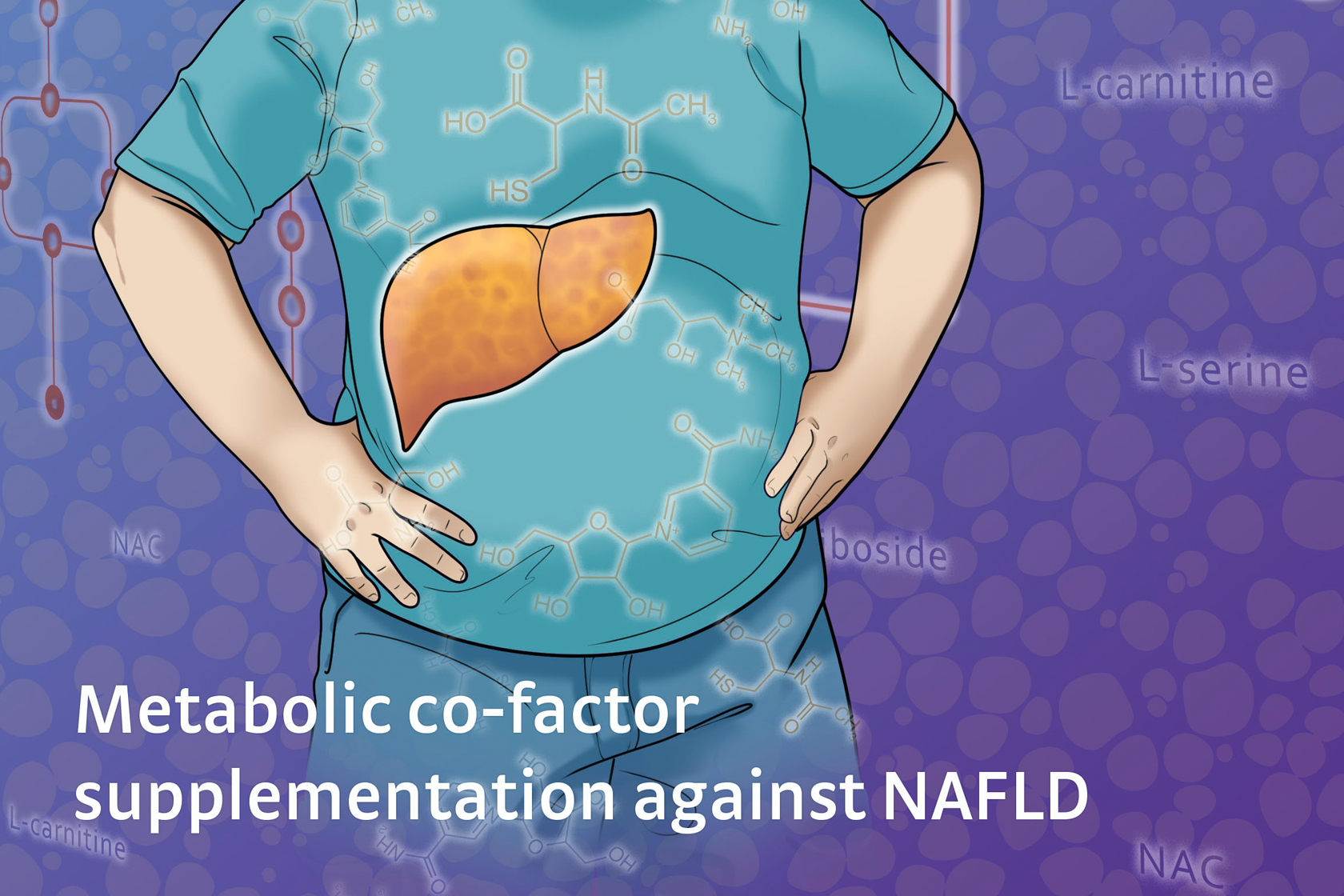ScandiBio Therapeutics has initiated a Phase II study in patients with Non-Alcoholic Fatty Liver Diseases (NAFLD) using Combined Metabolic Cofactors Supplementation (CMCS) consisting of L-serine, N-acetyl-L-cysteine (NAC), nicotinamide riboside (NR), and L-carnitine tartrate. A total of 45 NAFLD patients will be randomized on a 2:1 basis to the cofactor mixture or placebo in one center. The primary objective of the study is to assess the difference of liver fat amount between subjects receiving either ten-week treatment with co-factor supplementation or placebo, as quantified by proton magnetic resonance spectroscopy (MRS). The secondary objectives are: (1) to determine the change in liver fat amount as measured by MRS and MRI within the same groups; (2) to assess the tolerability and safety profile of co-factor supplementation; (3) and to examine the additional efficacy parameters including biomarker, lipidomic, metabolomic and microbiota analysis.
Previous studies showed that each agent is able to decrease liver fat amount separately and a proof-of-concept study using serine supplementation, and a phase I study using this three-step approach resulted in a significant decrease in plasma metabolites associated with liver fat without significant side effect. Concomitant use of pivotal metabolic cofactors via simultaneous dietary supplementation will stimulate three different pathways to enhance hepatic β-oxidation and our hypothesis is that this will result in decreased amount of fat in the liver.
The study is based on a three-step strategy to increase the amount of fat oxidization in liver:
- L-carnitine tartrate to enhance the transport of fatty acids across the mitochondrial membrane (by forming a long chain acetylcarnitine ester and being transported by carnitine palmitoyltransferase [CPT] I and CPT II) and to stabilize acetyl-CoA and coenzyme A levels.
- Nicotinamide riboside, precursor of NAD+ to boost the level of hepatic β-oxidation of fatty acids in mitochondria. Decreased electron transport chain function combined with impaired rates of fatty acid β-oxidation leads to the accumulation of incomplete products of β-oxidation, which combined with increased levels of reactive oxygen species (ROS), contribute to insulin resistance. Nicotinamide riboside stimulates the transfer of fatty acids from cytosol to mitochondria, similar to L-carnitine tartrate.
- Two glutathione precursors, serine and N-acetylcysteine (NAC), to increase glutathione levels in the liver allow for the maintenance of redox balance, reduction of oxidative stress, enhancement of metabolic detoxification, and regulation of immune system functions. Increased glutathione levels in the liver will also protect against free radical-mediated oxidative stress generated by the increased β-oxidation of fatty acids in mitochondria

